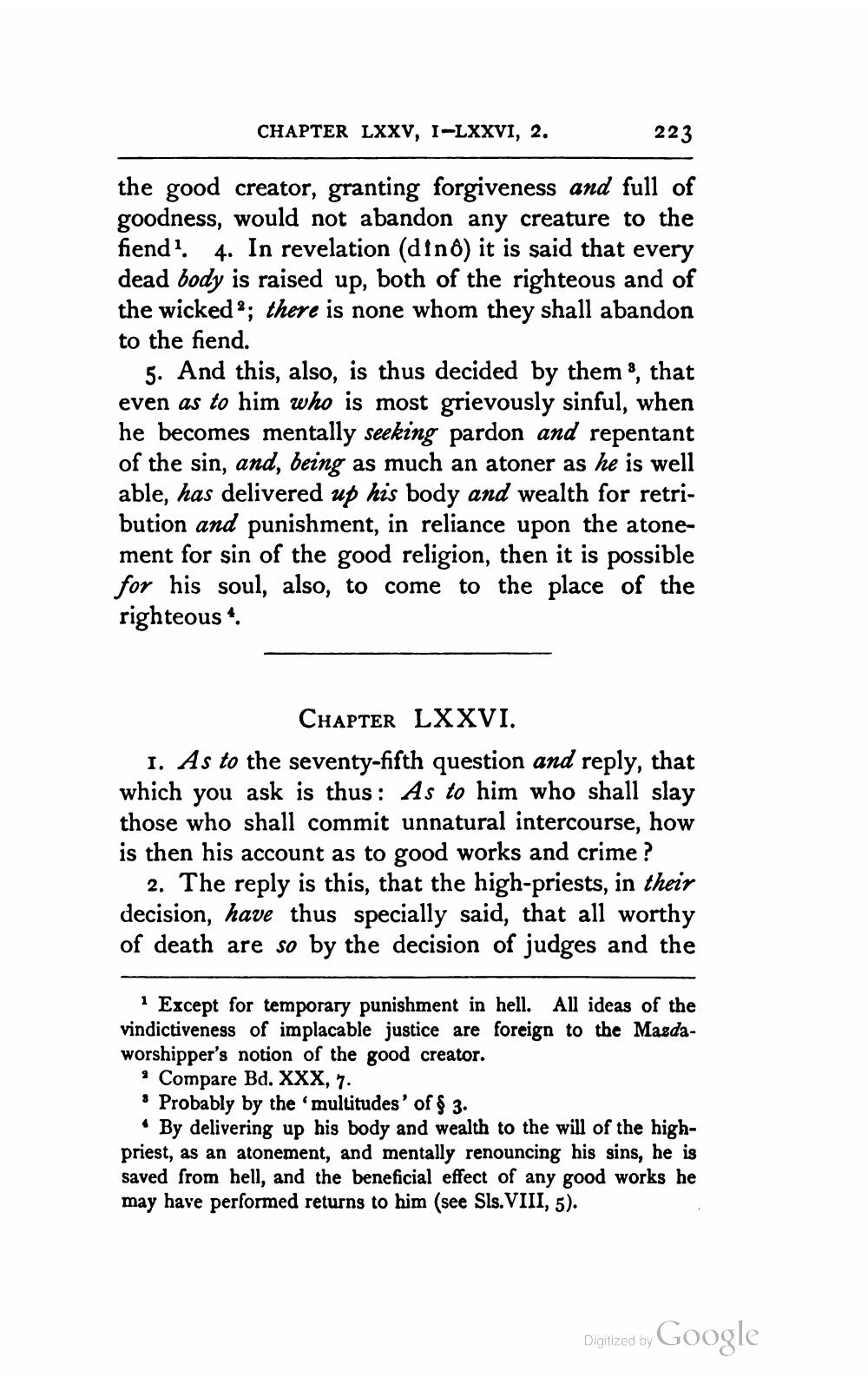________________
CHAPTER LXXV, 1-LXXVI, 2.
223
the good creator, granting forgiveness and full of goodness, would not abandon any creature to the fiend?. 4. In revelation (dino) it is said that every dead body is raised up, both of the righteous and of the wicked ; there is none whom they shall abandon to the fiend.
5. And this, also, is thus decided by them, that even as to him who is most grievously sinful, when he becomes mentally seeking pardon and repentant of the sin, and, being as much an atoner as he is well able, has delivered up his body and wealth for retribution and punishment, in reliance upon the atonement for sin of the good religion, then it is possible for his soul, also, to come to the place of the righteous.
CHAPTER LXXVI. 1. As to the seventy-fifth question and reply, that which you ask is thus: As to him who shall slay those who shall commit unnatural intercourse, how is then his account as to good works and crime?
2. The reply is this, that the high-priests, in their decision, have thus specially said, that all worthy of death are so by the decision of judges and the
1 Except for temporary punishment in hell. All ideas of the vindictiveness of implacable justice are foreign to the Mazdaworshipper's notion of the good creator.
* Compare Bd. XXX, 7. • Probably by the multitudes' of $ 3.
. By delivering up his body and wealth to the will of the highpriest, as an atonement, and mentally renouncing his sins, he is saved from hell, and the beneficial effect of any good works he may have performed returns to him (see Sls. VIII, 5).
Digized by Google




